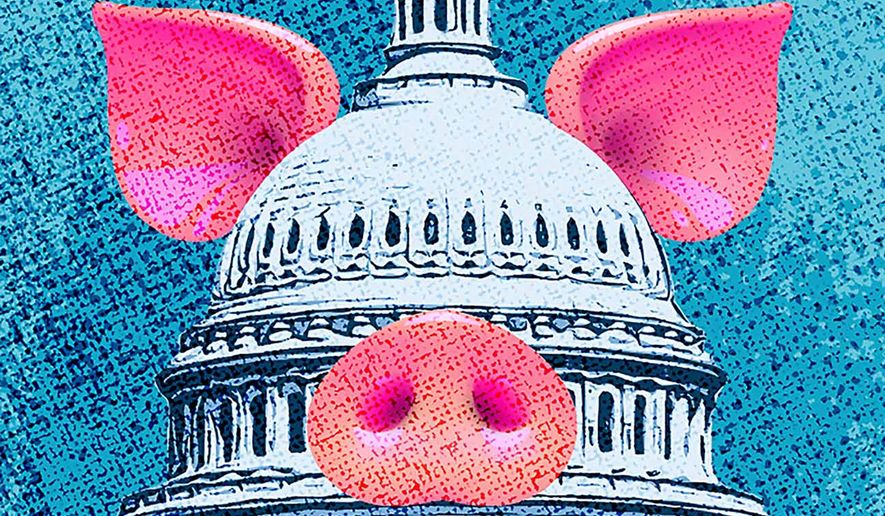OPINION:
The American people have entrusted Republicans with the House majority at a time of unprecedented fiscal peril for our country: 40-year-high inflation, economic recession, and an approaching debt crisis — all driven by the most reckless spending in our nation’s history. And history is screaming this warning: Nations that bankrupt themselves aren’t around very long.
Republicans must reclaim the mantle of fiscal integrity and fiscal responsibility. A good place to start would be to renounce the tawdry practice of congressional earmarks, in which individual members insert provisions in bills that direct spending to pet projects in their districts or to favored supporters, bypassing merit-driven competition. The House Republican Conference will consider just such a proposal when Congress returns after Thanksgiving.
Earmark supporters argue that the power of the purse rests with Congress and that elected representatives — not unelected bureaucrats — should make these decisions.
Not exactly. Representatives are supposed to be biased toward their districts. That’s why Congress is designed to act collectively. Ever since the Magna Carta, it has been a settled principle of good governance that the power to appropriate funds should be separated from the power to spend them. This is at the heart of the constitutional separation of powers: Congress appropriates funds but cannot spend them, and the president spends funds but cannot appropriate them. This is the single most important protection we have against political corruption and pork-barrel spending. Earmarks undermine this principle, and it’s no coincidence that most of the congressional scandals over the years have involved earmarks.
A local company produces a product the Pentagon neither needs nor wants. What to do? It simply ingratiates itself with the local congressman and has him tell the Pentagon what it needs and who will provide it. Then it rewards him lavishly at election time and repeats.
Worthy projects, in open competitive bidding, don’t need earmarks — they rise or fall on their merits. And if there is such a thing as a “good” earmark, the price to be paid is all the bad ones. And that’s a high price indeed.
The omnibus spending bill in March included nearly 5,000 congressional earmarks totaling $9 billion for some of the most outrageous examples of waste in the federal budget: Feral swine management in Arkansas, a national atomic testing museum in Las Vegas, a sheep experiment station in Idaho.
Members can and should advocate for their districts, and make the case for projects they deem worthy of the money Congress has appropriated. The problem with earmarks is blurring these two roles and having members both advocate and decide.
Many say they don’t trust this president and his deputies to administer these funds appropriately and evenhandedly. Fair enough. Then don’t give him the money. Problem solved.
Some say that earmarks simply assure that local governments get a fair break, particularly for the minority. No. What they actually do is turn the federal budget into a grab-bag for local pork spending by the most powerful members of the House. And they undermine the central tenet of federalism: That local projects should be financed by local communities and federal spending reserved for the nation’s general welfare.
When a local government proposes an earmark, what is it saying? The project is so low on its priority list, it doesn’t dare to spend its own taxpayers’ money. But it’s perfectly happy to have taxpayers in other communities foot the bill. The result is a long list of dubious projects that rob St. Petersburg to pay St. Paul — for projects that St. Petersburg doesn’t benefit from and St. Paul doesn’t deem worthy enough to spend its own money on.
Finally, it’s said that earmarks can “grease” legislation by buying off the votes of individual members. Add a few local projects for that member, and suddenly a bill he would never vote for on its merits becomes a local imperative overriding his sound judgment. Exactly how is that a good thing?
The new Republican majority needs to make a dramatic, concrete and credible statement that business as usual in Washington is over. Is there a more powerful statement it can make than to swear off the wasteful and corrupting practice of congressional earmarking?
• Congressman Tom McClintock represents California’s 4th Congressional District.




Please read our comment policy before commenting.